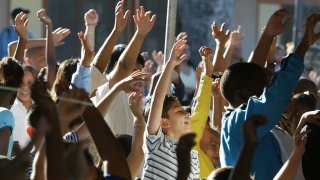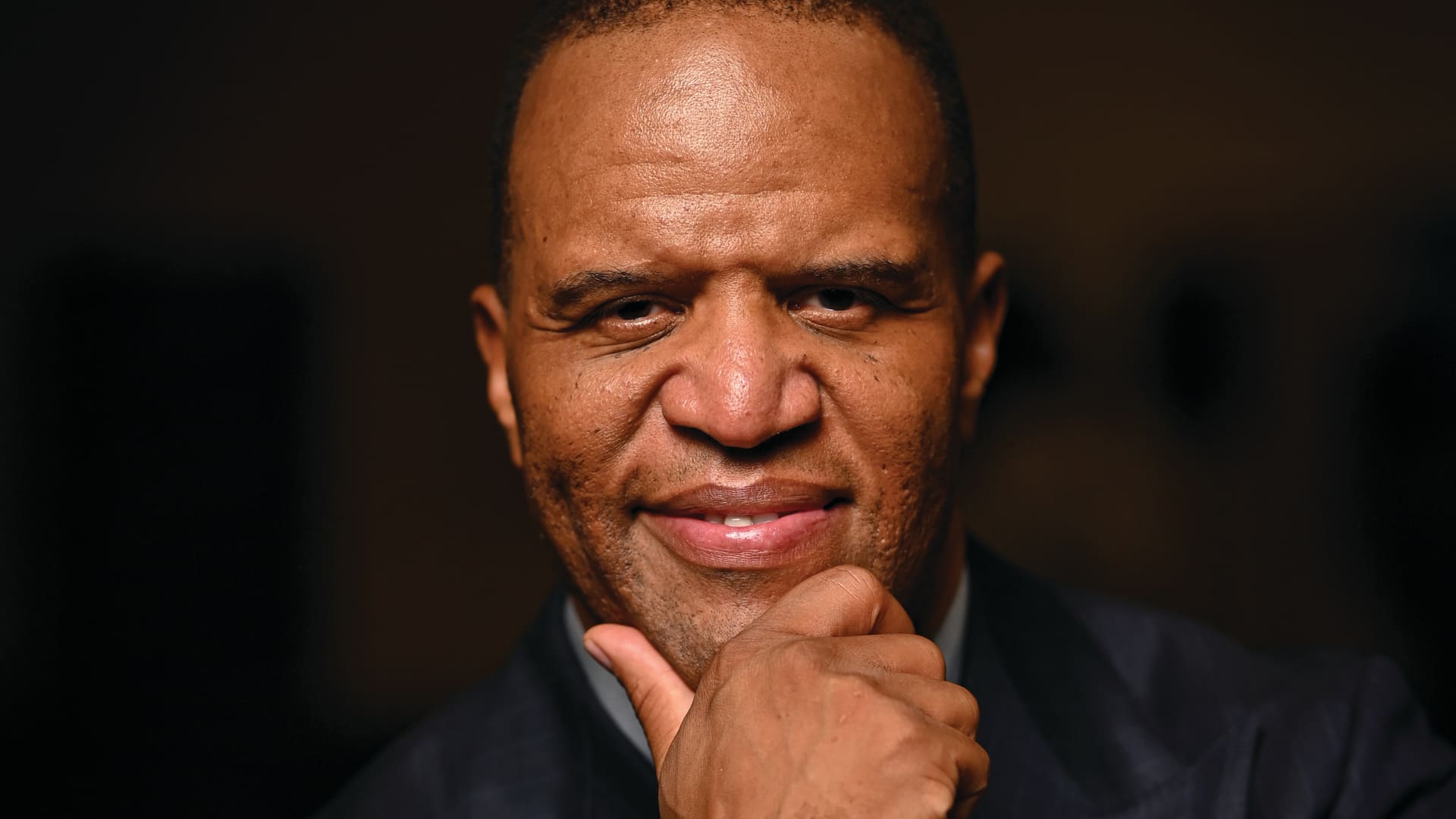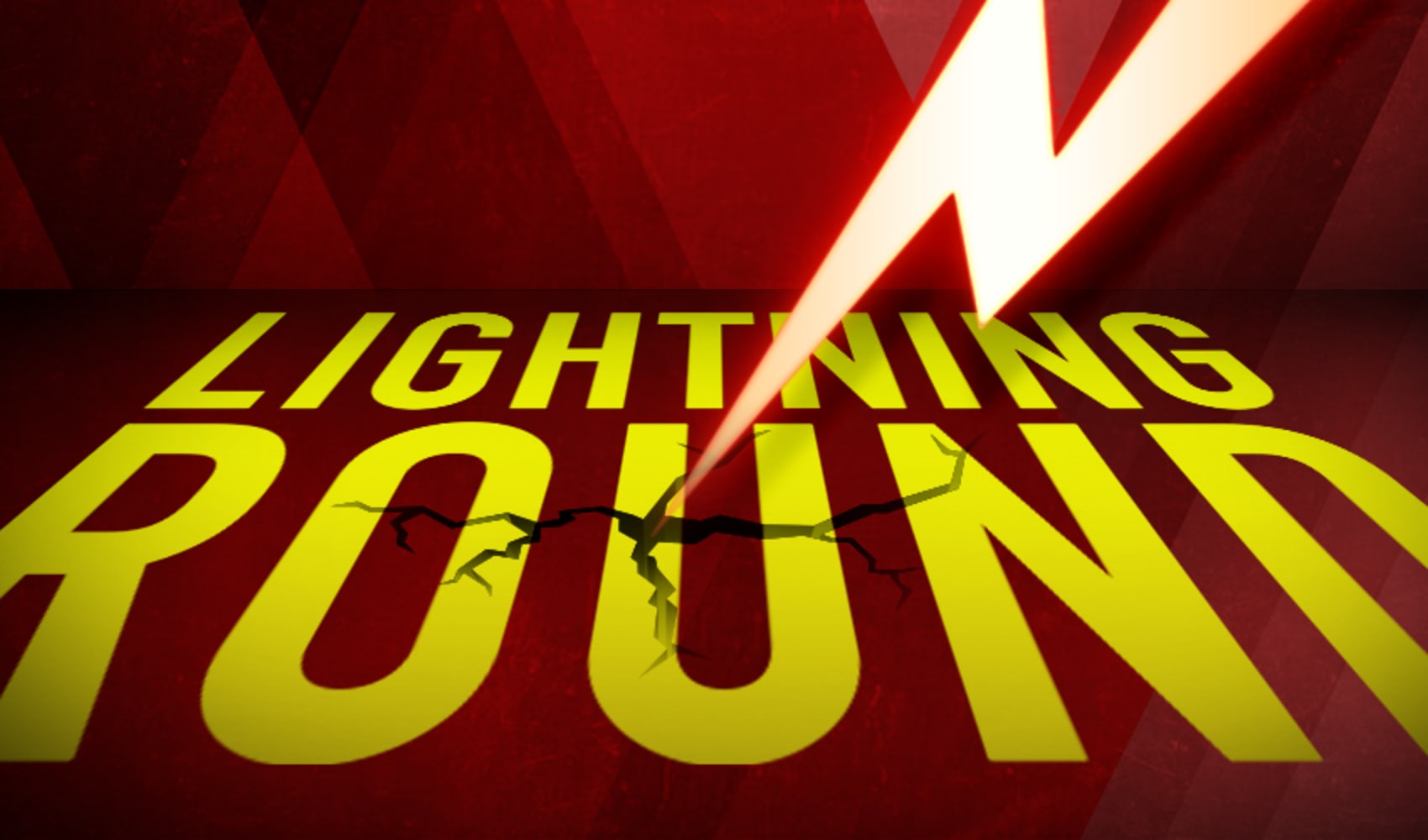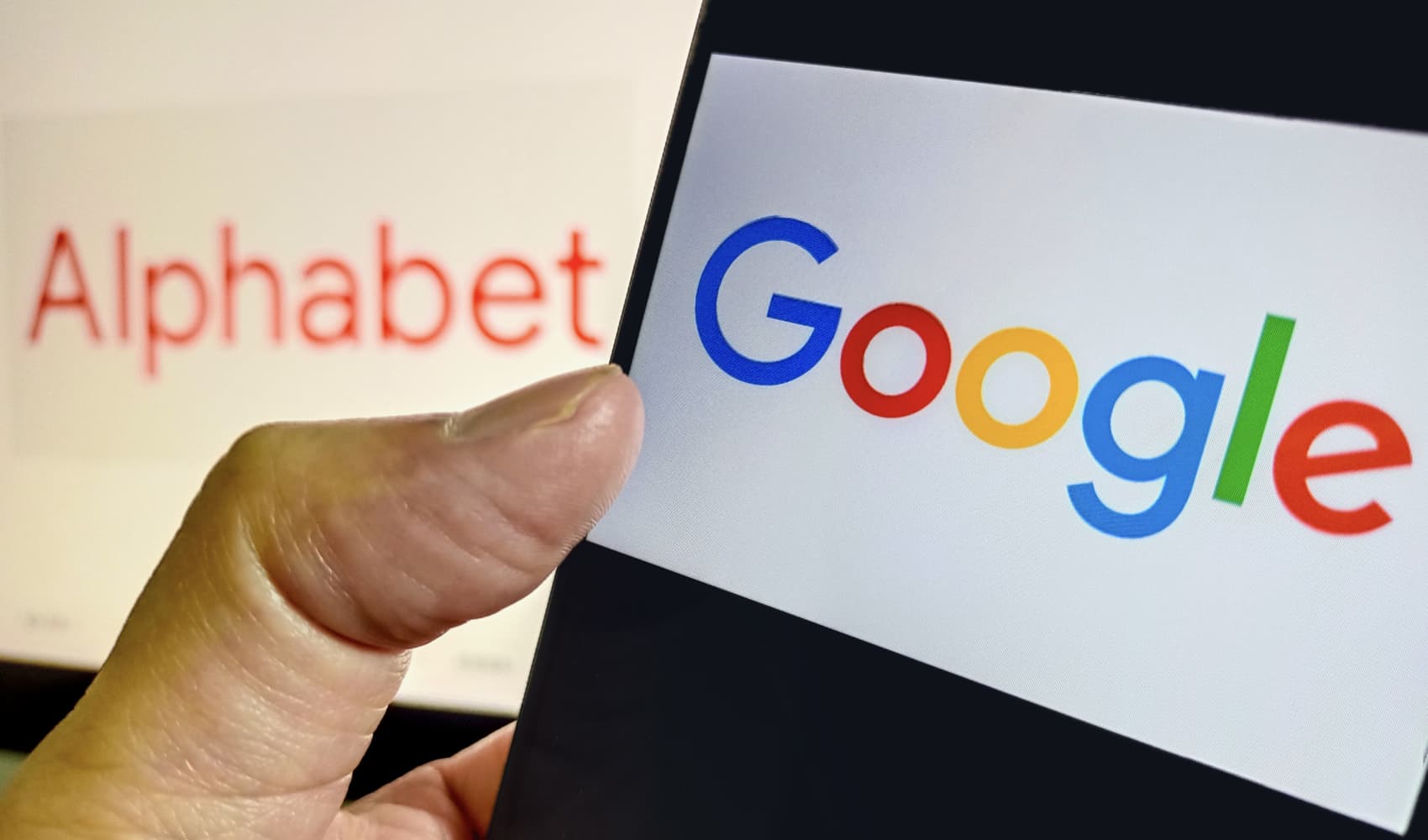
- One of the first efforts that President Abraham Lincoln signed into law immediately after the Civil War was the Freedman's Bank, which was "chartered to teach freed slaves about money."
- In America's history, few threads are as significant, and as overlooked, as that of financial literacy.
- Financial literacy is the civil rights issue for this generation, writes entrepreneur and Operation Hope founder John Hope Bryant.
In the evolving tapestry of America's history, few threads are as significant, and as overlooked, as that of financial literacy. Financial literacy is arguably the least expensive and most effective tool for community economic development in existence today. Other than a job or a basic means of creating income, it is the greatest tool for personal economic uplift available to every individual on the planet desiring greater self-determination.
Economic growth provides jobs, increases wages, and leads to a higher standard of living for its citizens. However, the engine for economic growth is not simply having more businesses or more products. It is the increased participation of people within the economy. The more people are involved in economic activities, such as earning, spending, saving, and investing, the more robust the economy becomes.
Feeling out of the loop? We'll catch you up on the Chicago news you need to know. Sign up for the weekly Chicago Catch-Up newsletter here.
As I say repeatedly in media and speeches here and around the world, it is the first thing that U.S. President Abraham Lincoln pivoted to, immediately after the Civil War in 1865, when he signed into law the Freedman's Bank, which was "chartered to teach freed slaves about money."
Operation HOPE and I are committed to bringing the vision and mission of the Freedman's Bank back to life and at scale. We need the working class and the laddered-up middle class in America, and around the world, to grow. Without financial literacy, we cannot fully participate in our free enterprise system, and we cannot make informed financial decisions. We are left at the mercy of an economic system we do not fully understand — and worse yet for some of us, one that was not designed to support us.
Money Report
According to a recent CNBC survey, seven in ten adults in the U.S. (70%) are "very or somewhat stressed" about their personal finances. Having a steady paycheck isn't enough. According to PwC's 2023 Employee Financial Wellness Survey, 60% of full-time workers are stressed out about their finances.
Research shows that financial security increases with financial education. According to the TIAA Institute-GFLEC Personal Finance Index, which has been conducted annually since 2017, consumers who got high scores on the financial literacy questions were significantly less likely than those with low scores to have difficulty making ends meet in a typical month, to lack emergency savings or to be unable to come up with $2,000 to cover an unexpected expense.
Imagine this scenario: You've worked your entire life, providing for yourself and your family, playing by the rules, and saving what you can. Now, you're approaching your retirement years, hoping that what you've saved is enough to carry you through and that your years of hustle and hard work have built a secure foundation for your future. But here's the reality: the nest egg you've been nurturing isn't enough to cover your expenses, let alone an unforeseen emergency. And worst of all, it's too late to do anything about it. This nightmare scenario is one too many Americans face, and it's due to a lack of financial literacy.
Think about this for a moment. We live in the largest, strongest, most robust economy on the planet, yet most of our children don't even get one class in financial literacy. No one is telling them (and us) how this economy works.

What I have seen firsthand, coming up from nothing in Compton, California, and now as an entrepreneur and successful businessman who eats, breathes, and sleeps financial literacy, is that it's not a lack of desire or ambition that holds so many of us back from long-term financial freedom. It's bad role models and a lack of the essential building blocks for financial success, including the knowledge and comfort to talk about money, the tools and resources to better our situations, and the right enabling environment to win.
Building credit scores and communities
I propose we start by working to lift every credit score community in America.
Credit scores don't just signal an individual's creditworthiness, they are an exceedingly precise barometer for the strength and resilience of entire communities. Raise a neighborhood's average credit score by just 100 points, and you'll witness a profound transformation. For example, we found that in 580 credit score communities, individuals live to around 61 years of age. It's important to note here that you don't collect Social Security until age 65. Now, just a mere 15 minutes away, in a 700-credit-score community, people are living to 81 years or older. Think about that: A 120-point difference can lead to 15+ more years of life.
In the 580-credit score community, most people have a high school degree, while in the 700-credit score community, they are college-educated. In the 580 community, you find a proliferation of single-parent households (irrespective of race, by the way), while in the 700 community, it's overwhelmingly two-parent households. In the 580 community, you have a very low homeownership rate — between 25% to 45%, while in the 700-credit score community, it's more than 75%. And I don't care what anyone tells you, the easiest way to build wealth in America is still homeownership. In fact, in the 580 community, the violent crime rate is 75 per 1,000 residents, while in the 700 community, it's about 2 per 1,000 residents.
Nothing changes your life more, other than God or love, than moving your credit score to 120 points. At Operation HOPE, we are moving credit scores up 54 points in six months, moving debt down $3,800, and helping people increase their savings by $1,100 on average. By raising the credit scores of communities, we are helping banks to get out of the "no" business (declining loans), and back into the "yes" business (investing in individuals and businesses) at scale because you cannot build or rebuild any community without having a dedicated banking sector and broad-based access to capital. This is our laser focus, and this is also our plan for the nation.
Approximately half of Black Americans have a credit score below 620. Not poor Blacks — everyone. And while we may think our most serious problem is police abuse or the everyday racism we experience at a store retail counter, the truth is, this just might be worse — because every day 50% of Black America wakes up 100% locked out of the free enterprise system.
We cannot get auto loans with good rates and terms with a credit score under 620. We cannot get a prime mortgage for the home of our dreams with a credit score under 680.And we certainly aren't getting that loan to start that small business we've been dreaming about with a credit score below 700. But this I do know. If we can educate people on how to raise their credit scores from say 580 on average, to somewhere around 680 or better, we can stabilize America.
Financial education and financial wellbeing goals
This empowering work stands on the legacy shoulders of civil rights, a 20th century movement that was fought in the public streets. The measurable impacts I have seen through our work at Operation HOPE and the efforts of so many other incredible organizations lead me to highlight four education areas I believe we can lend focus to as we strive for a fair and just society, to break the chains of financial inequality, and build a future where financial literacy is not a privilege but a fundamental right.
We need to transform relationships with money starting in childhood
Financial literacy plays a pivotal role here. It offers the tools and knowledge to transform one's relationship with money. Through it, individuals can understand the power of investments, the magic of compound interest, and the importance of savings. They can navigate the complex world of credits and debits with confidence, ensuring they're not just earners, but wealth creators.
A study by the National Endowment for Financial Education found that young adults who had taken a financial literacy course in school were more likely to budget, save, and invest wisely than those who hadn't. It's clear evidence that education can pivot the trajectory from "living for the day" to "planning for tomorrow."
We need more accessible funding for Black and brown entrepreneurs
From restricted access to capital and biases in lending to a lack of financial education, business mentorship, and resources, Black and brown entrepreneurs often find themselves navigating a maze of challenges. We can bridge this gap by creating accessible funding for budding entrepreneurs, developing mentorship programs to help light the way, and providing training and skill development classes.
Without funding, even the most brilliant concepts remain just that — concepts. And for far too long, communities of color, particularly the Black community, have been deprived of this vital fuel. Creating accessible funding is about more than just providing capital. It's about trust, belief, and validation. It's about telling every would-be entrepreneur, "Your ideas matter. Your dreams are valid. And we believe in your potential to succeed."
This absence of access is not just a mere oversight; it's a systemic shortcoming that has stifled dreams and aspirations for generations.
We need more financial wellbeing benefits in the workplace
Not everyone has the desire to be an entrepreneur. And that's okay. A financial education and empowerment program must also cater to those who want to succeed in the modern workforce.
Picture this: You walk into the human resources office of your new job, and there on the table is your employment package. You see the usual suspects — health insurance, dental, vacation time — but nestled among these typical offerings is something you didn't expect. Financial well-being benefits. Your employer isn't just interested in your physical health; they're committed to your financial health.
Imagine having a financial counselor as part of your employment benefits, a personal guide who helps you with everything from understanding taxes to making savvy investment decisions. But let's not stop there. What if your employer also offered financial literacy workshops, and regular sessions where everyone from interns to executives can come together to learn about the intricacies of personal finance?
Employees who are not distracted by the stress of living paycheck to paycheck are likely to be more focused, more productive, and more committed to their jobs. Companies that show genuine care for their employee's well-being, can build a reputation as an employer of choice, attracting top talent in a competitive market. Some forward-thinking companies are already leading this charge of employee financial wellness, including my friends Doug McMillon at Walmart and Ed Bastian at Delta Air Lines.
We need more conversations about private sector work within communities
I have seen firsthand, through my work with Operation HOPE, the powerful impact that partnership with the private sector can have on communities. By merging resources, we've provided essential financial literacy programs and services to those who need them the most and we've seen the profound, life-changing effects that these programs have on individuals, families, and communities.
At Operation HOPE, our partnerships with private-sector companies have enabled us to open nearly 300 offices serving over 1,000 locations across America. So how do we encourage more of this type of innovation and partnership? That's a conversation we need to have in our boardrooms, our government offices, and our communities.
—John Hope Bryant is a member of the CNBC Financial Wellness Advisory Board and CNBC CEO Council.






